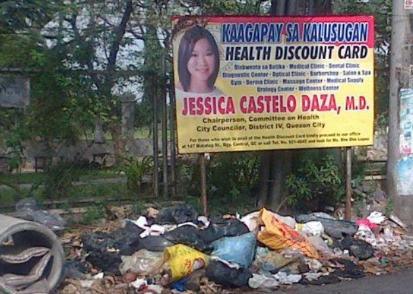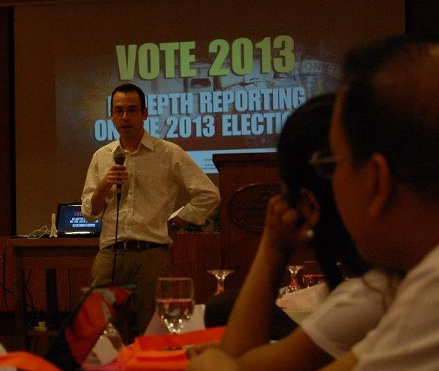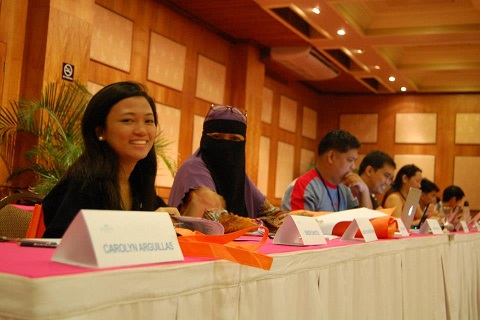By Ace Esmeralda, VERA Files
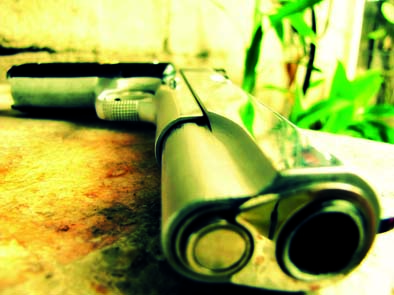
A .45 caliber pistol like this one was used in the accidental shooting of Stephanie Nicole and in the rampage of Ronal Bae. Photo by SecurityMatters
For many, the gun ban brings some relief, especially since the country enters this period with heightened fear of gun-related violence.
The accidental death of 7-year-old Stephanie Nichole Ella in Caloocan City from a stray bullet fired on New Year’s Eve, to the killing of 10 people by an alleged mentally deranged and drug-crazed frustrated village politician in Kawit, Cavite a few days later have prompted calls for a total gun ban, gunless society, taking into the arena issues against gun ownership, regulation and control. Some quarters even associate gun crimes with President Benigno Aquino III’s passion for guns.
Yes, it’s quick and convenient to focus on gun control than to go over many other equally alarming social issues that might lead to the same bloody aftermath. Drugs, gangs, mental health issues and violence can always lead to a killing spree anytime. There are other crimes that contributed to the crime volume. But since our police data are rarely available and reliable, we just have to trust the statement of no less than President Aquino that the total crime volume went down in 2012.
If, indeed, the trend observed by the Philippine National Police is true, gun-related crimes shall likely drop sometime soon. In 2010, when gun ban was strictly imposed, the crime rate incidence fell by nearly 70 percent during the first half of the year compared to the same period in 2009. There are no verified official data that point to politicians as prone to use their protective weapons during election period. However, several politicians died from assassins’ bullets in 2012.
The 2013 Election Gun Ban, in particular, is anticipated to perform better in statistics being coupled with PNP’s police intervention operations. There’s the Oplan Katok program undertaken to recover firearms with unrenewed licenses. After all, police data revealed that 1.2 million of loose firearms accounted for 97.7 percent of gun-related offenses in 2009. Read again, almost all gun-related cases are perpetrated by loose firearms.
Now, does the success of the election gun ban, at least according to PNP data, merit the enforcement of a year-round total gun ban?
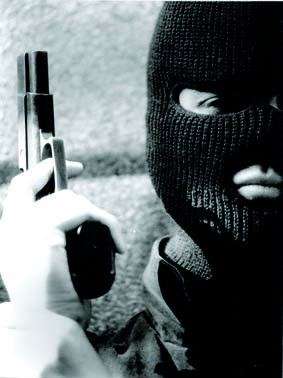
Lawless elements will not respect gun bans since they don’t use traceable licensed firearms. Photo by tomskydive
The election gun ban practically prevents licensed and responsible gun owners from carrying their defensive weapons during the critical months of the election period. Is it the best way to say thanks to them when most of the time they’re not the ones involved in gun-related offenses?
Most likely, the politicians have been given exemptions already.
It is doubtful if an election gun ban type could have prevented the New Year’s Eve firing of guns or the rampage in Cavite. Revellers can still fire their weapons from their private areas and drug-crazed people will forget or disregard a gun ban.
Perhaps the actual implication of a successful Election Gun Ban is not necessarily the call for a total gun ban, but the call for active policing against gun-related offenses.
There’s no need to wait for the election period to actively enforce gun control laws. Most likely, police intervention operations may be integrated in regular policing functions. Or simply doing their job like in Oplan Katok.
Gun control laws are clear: “Illegal manufacture, sale, acquisition, disposition, or possession of firearms, ammunition, or instruments used or intended to be used in manufacture of firearms or ammunition” is deemed punishable by law.
However, the industry of illegal firearm distribution still thrives in the country. This includes the illegal trade of firearms and ammunitions either manufactured locally (in Danao City being the gun capital of the Philippines) or smuggled into the country to supply weapons to insurgents and private armed groups.
It also includes the illegal trade of firearms and ammunitions initiated by corrupt government officials from the police and the military hence the bulk of weapons found in the possession of the Ampatuans in Maguindanao and those in the hands of private armed groups.
Gun ownership laws clearly stipulate in black and white that possession of firearms and ammunition is not just a matter of paying fees at licensing offices. Filipino citizens of at least 21 years of age can obtain a license, provided they are of good moral character. And this is one of the law’s grey areas.
Apparently, Ronald Bae, the shooter who killed 10 people in Kawit, Cavite, passed the good moral character requirement and secured three firearms under his name. Bae, the son of a police officer, had an AK-47 automatic rifle, Elisco M-16 rifle and Sig Sauer.45 cal. semiautomatic pistol although during his shooting rampage he preferred to use an unregistered 1911 .45 cal. pistol.
There’s a high probability that mentally and psychologically unstable persons are prone to violent acts whatever sort of weapon happens to be at hand. Renowned Milwaukee psychiatrist Dr. H. Steven Moffic revealed, “Adding guns and knowing how to use them, to someone with apparent mental problems, surely increases the odds of something bad happening.” No wonder, they may end up causing death or injury to oneself or another.
It’s understood that sensationalism of gun control laws, a gun ban in particular, will ensue in the wake of several incidents of gun-related violence, but is the issue worth the heightened clamor?
According to the United Office on Drugs and Crime (UNODC) and Small Arms Survey published by Guardian News UK on “Gun Murders and Ownership” world list, there were 7,349 cases or 8.93 incidents per 100,000 population of homicide by firearm in the Philippines which accounted for 49.9 percent of murder fatalities. The Federal Bureau of Investigation revealed that there are more homicide cases caused by hammers, knives, fists and clubs than with the use of firearms in the United States.
In a country confronted by diverse criminalities, the government cannot afford to take chances on winning one battle and losing the rest especially when the use of guns is only an offshoot of more serious matters such as illegal drug trade, gambling, robbery, kidnapping, trafficking, extortion, insurgency, and rebellion. Criminals can always resort to other weapons.
Penal laws, as a matter of fact, virtually neglect the choice of weapon in committing crimes even though use of illegal firearms is taken as an aggravating circumstance. What’s for sure is that criminals aren’t likely to face additional charges for illegal possession of firearms and ammunition. Consequently, it undermines the social policy on gun control.
Sooner or later the debate on gun laws will be overshadowed by another issue, but the sad reality remains that the demand for gun ownership will persist as long as social insecurity continuously haunts citizens. Unfortunately, social insecurity is embedded in countries dwelling with widening gap between the upper and lower classes of the society. When the country, despite its best efforts, fails to restore parity, people will likely be armed for a fighting chance to go up the ladder.
The perception that guns are increasing our country’s crime statistics is a manifestation of what we as a public know about guns and crimes. Gun control starts with enforcing what are in our existing laws and amending the regulatory weaknesses that nurture illegal distribution of firearms. The government and the public should focus more on crime prevention when taking into account the state of peace and order.
(Ace Esmeralda is a former Army officer and graduate of the Philippine Military Academy. He is a Certified Protection Professional of the ASIS International and asset protection consultant to several multinational corporations.)
(VERA Files is put out by veteran journalists taking a deeper look at current issues. Vera is Latin for “true.”)

